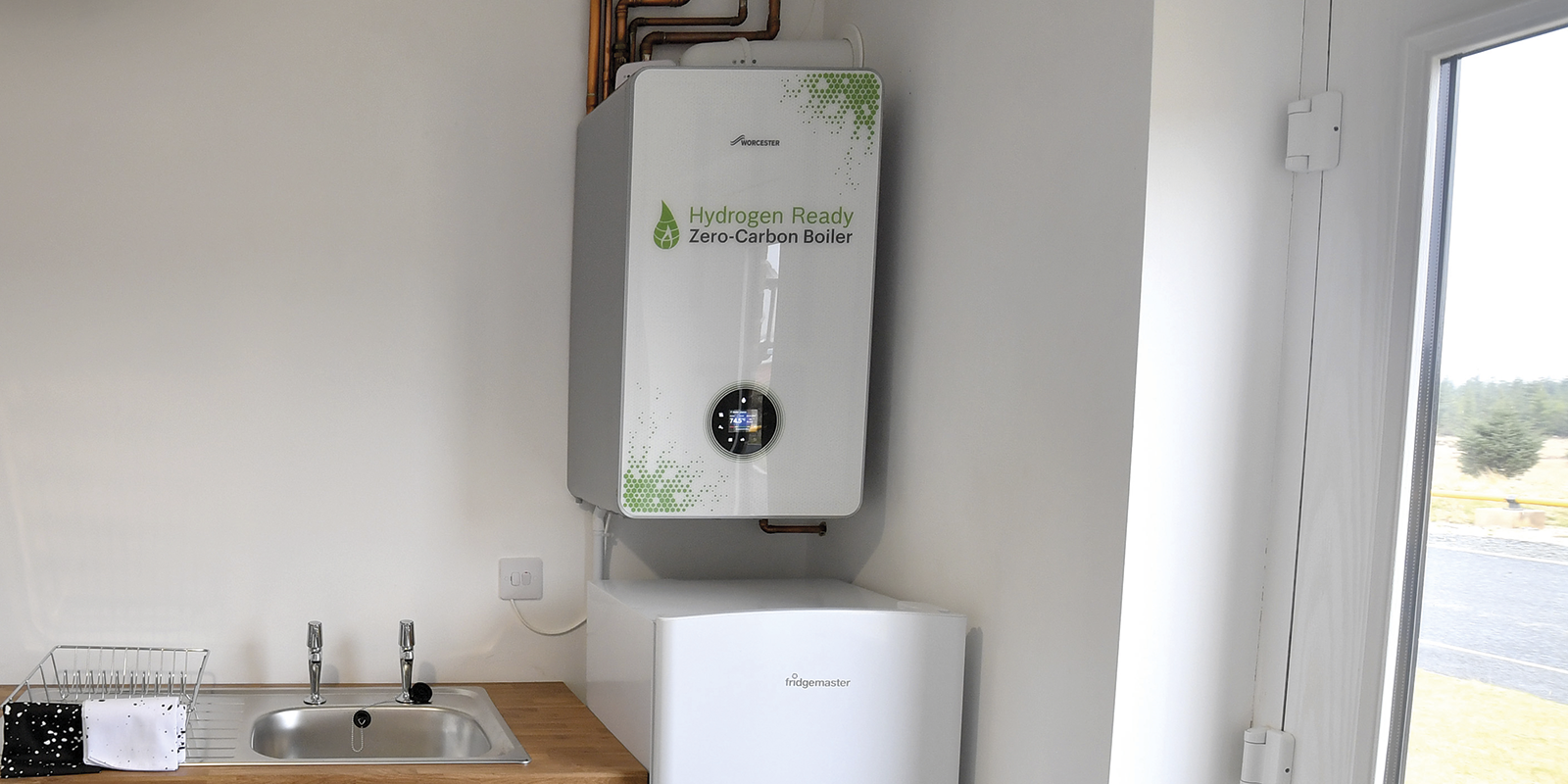Gas boiler ban: managing expectations

Home and business maintenance company Rightio provides a guide to managing consumer expectations regarding the 2023 boiler ban.
George Bernard Shaw once wrote: “The single biggest problem in communication is the illusion that it has taken place.” While the industry grapples with new regulations and standards for new builds, those in existing housing stock are struggling to understand what they can do to improve the energy efficiency and performance of their properties – or even if they should do anything.
In 2019, the UK government announced that it would introduce a ban on gas boilers in new-builds. Originally scheduled for 2025, it has since been brought forward to 2023. It’s estimated that 14% of the UK’s CO2 emissions are produced by homes, with gas boilers making up the majority of these emissions, so the ban will help the UK towards its target of net-zero emissions by 2050.
There is some confusion around the ban, what it means for UK households, and the consequences of not installing a greener boiler by the deadline. One of the most prevalent misunderstandings around the ban is that people who already have gas boilers must change them before the 2023 deadline. However, the ban specifically only applies to boilers in newly built homes from 2023 onwards, which must be built with a non-gas heating system.
Some of this confusion is also arising from the International Energy Agency (IEA) recommendation that fossil fuel boilers should not be sold from 2025 onwards and that existing gas boilers should be replaced. The IEA guidance hasn’t yet been put into place, but the UK government is considering implementing it, with a later deadline of 2040.
While the government has not announced a requirement for gas boilers to be replaced, it is providing incentives for homeowners who install heating systems that run on renewable energy – such as the Renewable Heat Incentive, which pays homeowners quarterly.
Cost of change
The IEA announcement has also led to a misconception that people who still have gas boilers by 2025 will be fined, with some headlines stating the fines could be as much as £10,000. However, the government has not currently committed to the IEA’s recommendations, and there are no fines in place for people who don’t replace their gas boiler by a certain point.
This doesn’t guarantee that fines won’t be introduced in the future, but the government is currently focusing on offering incentives to homeowners who switch to greener heating solutions rather than punishments for those who don’t.
While replacing or renovating a boiler will involve an initial cash outlay, switching to a greener source of heating is likely to save money in the long run. A simple like-for-like replacement can cost less than £2,000, but switching to an eco-friendly boiler will be a more intensive installation and will therefore cost more. The costs also vary based on whether a combi boiler or a conventional boiler is needed.
Electrification is a key part of the IEA’s recommendations – switching from fossil fuel-powered systems to electric ones is a key goal. An electric combi boiler can cost £1,500-4,500 for the system itself, with installation costs sitting at around £3,000. Although electric boilers currently cost more than gas-fired ones to run, electric boilers are more energy-efficient and offer more control than gas boilers, which can create a reduction in bills.
Aside from the fact that a ban on existing gas boilers may eventually become law, there are benefits to switching to a non-gas boiler. Unlike gas radiators and heating systems, electric radiators don’t need to be replaced unless they’re heavily damaged. Equally, electric boilers don’t require pipes or a flue to be installed – moreover, because they are sealed and pressurised, you should never encounter a leaking boiler. A lot of the maintenance costs associated with gas boilers don’t exist with electric boilers, and they don’t directly produce emissions, so the safety issues of carbon monoxide or other waste-gas leaks simply do not exist.

In September 2021, the government announced plans to invest in hydrogen boilers and the possibilities of mixing hydrogen with gas for continued use in existing boilers to help combat CO2 emissions. There are other options too, though none are inexpensive; for example, installing a heat pump comes with an upfront cost of around £6,000-8,000. Costing aside, these options can feel a little new and untested to the consumer – with many unsure if they will even work in their property. For example, heat pumps may struggle in older, poorly insulated properties to warm the house let alone heat water sufficiently for a shower or bath.
The forthcoming gas boiler ban has caused concern and confusion for consumers with existing boilers and, while there’s nothing yet that requires them to change from gas, it looks likely for the future. All of this means that the consumer is bombarded with options but little information about what is right for their situation. Perhaps it’s a good time to start communicating.
For more, visit rightio.co.uk
Renewable Heat Incentive bit.ly/EDFRenewableHeatIncentive









